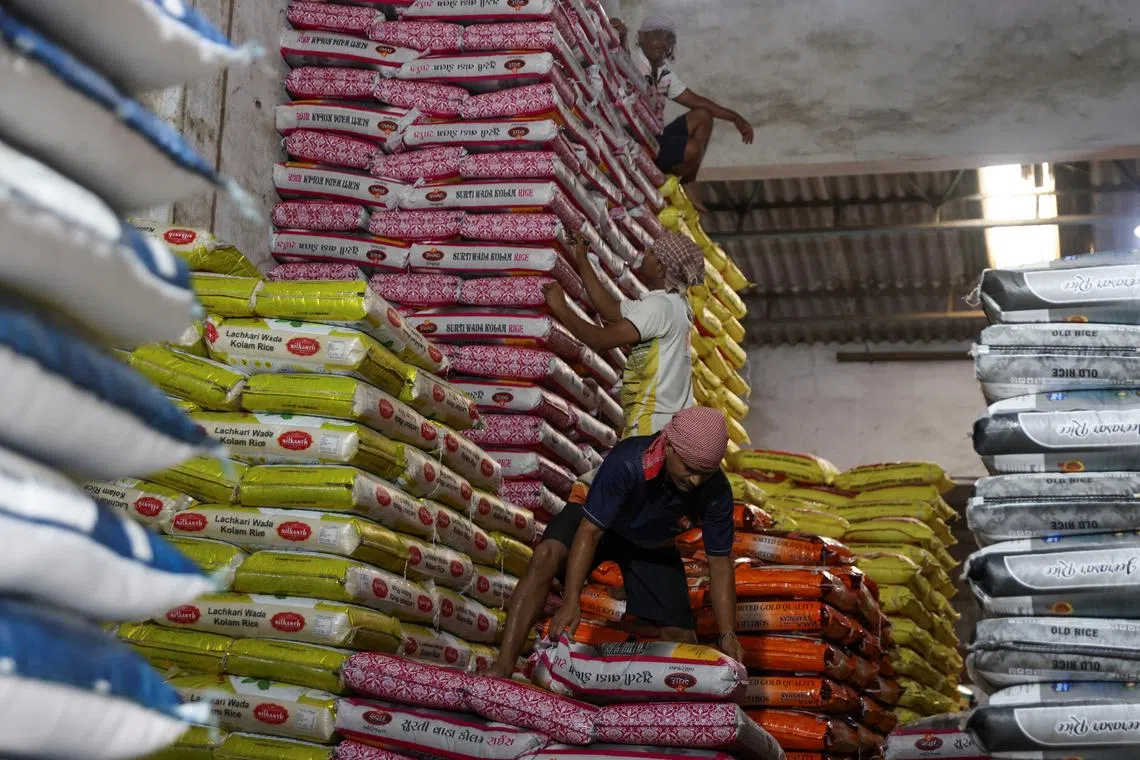India to allow rice exports to Singapore
Sign up now: Get insights on Asia's fast-moving developments

India also expanded curbs on rice exports, with a 20 per cent duty on parboiled rice effective until Oct 15.
PHOTO: REUTERS
NEW DELHI – India’s Ministry of External Affairs on Tuesday said the country has decided to allow rice exports to Singapore.
India and Singapore enjoy a very close strategic partnership, characterised by shared interests, close economic ties and strong people-to-people connections, the ministry said in a statement.
“In view of this special relationship, India has decided to allow export of rice to meet the food security requirements of Singapore,” added a ministry spokesman.
The Indian government said on Wednesday that an export quota of 50,000 tonnes of non-basmati white rice would be allocated for Singapore.
India has also allowed rice exports to Bhutan and Mauritius.
In July, India surprised buyers by imposing a ban on exports of widely consumed non-basmati white rice,
After the announcement, the Singapore Food Agency (SFA) said it was “in close contact with the Indian authorities to seek exemption from the ban”.
According to SFA, India accounted for around 40 per cent of Singapore’s rice imports in 2022. Singapore imports rice from more than 30 countries.
India, which is scrambling to rein in inflation ahead of state elections later in 2023, last Friday also expanded curbs on rice exports, with a 20 per cent duty on parboiled rice effective until Oct 15.
But the government on Tuesday said it allowed traders to ship out the thousands of tonnes of non-basmati white rice cargoes sitting at the ports because of the ban.
The Directorate-General of Foreign Trade (DGFT), a unit of India’s Trade Ministry, in its latest order said it would allow shipments of trapped cargoes provided traders had paid the export duty by July 20, when the ban was imposed.
After the DGFT order, about 150,000 tonnes of non-basmati white rice cargoes would be shipped out of various ports, said Mr Prem Garg, president of the Indian Rice Exporters Federation.
India accounts for more than 40 per cent of world rice exports, and low inventories with other exporters mean any cut in shipments could further inflate food prices already driven up by Russia’s invasion of Ukraine and erratic weather.
“The permission to allow the cargoes stuck at ports will not only help Indian suppliers, but... also consumers in some of the most needy countries,” Mr Garg said.
Most of the trapped cargoes would go to East African and West African countries, he said. REUTERS


